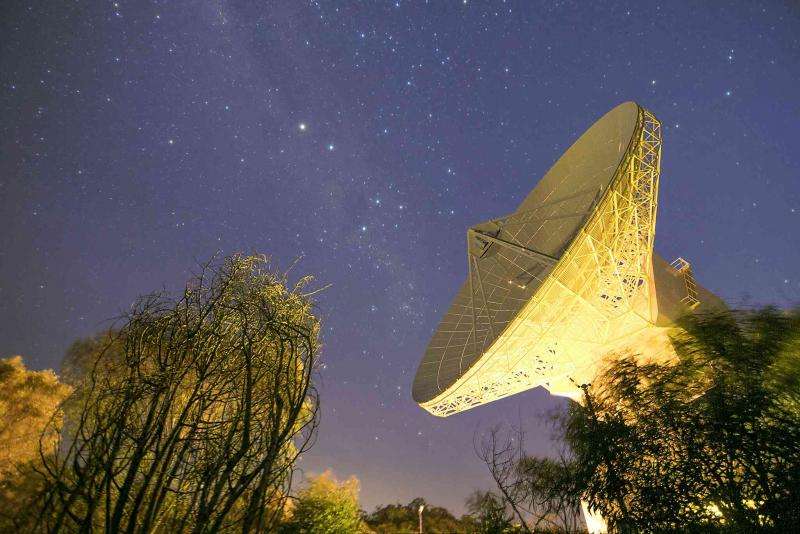Credit: D. O’Donnell/ESA – CC BY-SA 3.0
This image shows the 35 m-diameter dish antenna of ESA's deep-space tracking station at New Norcia, Australia, illuminated by ground lights against the night sky on 3 August 2015.
New Norcia (DSA-1) is part of the Agency's Estrack ground station network; it is located 140 km north of Perth, Western Australia, about 8 km from the town of New Norcia.
Estrack is a global system of ground stations providing links between satellites in orbit and the European Space Operations Centre, Darmstadt, Germany. The core network comprises 10 stations in seven countries.
The essential task of all ESA tracking stations is to communicate with spacecraft, transmitting commands and receiving scientific data and spacecraft status information.
Our technically advanced stations can track spacecraft almost anywhere – circling Earth, watching the Sun, orbiting at the scientifically crucial Sun–Earth Lagrange points or voyaging deep into our Solar System.
Like its sister 35 m stations at Cebreros, Spain, and Malargüe, Argentina, New Norcia station uses advanced European technology to communicate with deep-space missions such as Mars Express, Rosetta, BepiColombo and Gaia.
ESA shares Estrack capacity with other space agencies, who in turn support ESA missions. For example, NASA's Deep Space Network routinely supports Rosetta and Mars Express, while Estrack is working with Japan's Hayabusa-2 asteroid mission.
In recent years, Estrack has supported missions operated by China and Russia, as well as tracking the descent of NASA rovers to the surface of Mars.
This global cooperation allows all agencies to make use of a wide number of ground stations in geographically advantageous locations, maximising efficiency and boosting scientific returns for all.
In 2015, Estrack turns 40 and will celebrate four decades of linking people with spacecraft travelling to the frontiers of human knowledge.
Provided by European Space Agency






















